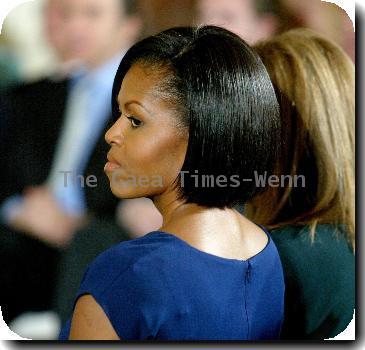White House showcasing improved Russian relations as President Medvedev visits
By Desmond Butler, APThursday, June 24, 2010
White House points to success as Medvedev visits
WASHINGTON — The Obama administration is showcasing what it sees as one of its main foreign policy successes — warmer relations with Russia — as it welcomes President Dmitry Medvedev to the White House.
The Russian president arrived at the executive mansion on a blistering Washington morning, out of the view of the media. He was holding an Oval Office meeting with Obama and then an expanded discussion with the president and their teams in the Cabinet Room before the two leaders were scheduled to address reporters.
Struggling with problems in Afghanistan, the Middle East and elsewhere, administration officials can point to signs that efforts to reset relations with Moscow have delivered tangible results. They cite Russia’s support for sanctions against Iran and the signing of a major nuclear treaty.
Conservative critics, though, see Obama as too conciliatory to Russia, and say he has not resolved disputes over issues such as Moscow’s human rights record, missile defense and Russian tensions with neighboring Georgia. They charge that by speaking softly on those issues, the United States is compromising its influence among Russia’s neighboring countries.
“We are paying a huge price for the reset policy,” says Ariel Cohen of the conservative Heritage Foundation.
Administration officials say they have stood their ground on disagreements with Russia but have shifted the tone away from conflict, which they say is a sign of a maturing relationship.
Thursday’s agenda is modest. The two leaders are looking to expand their countries’ limited levels of trade — Russia has the world’s eighth-largest economy but ranks 25th among U.S. trading partners — and are expected to sign some joint statements on cooperation. No major new developments are expected.
“The true significance of Medvedev’s visit is that it brings us closer to a relationship that doesn’t require Cold War-style summits to sustain itself,” says Sam Charap, a Russia analyst at the Center for American Progress. “The lack of headlines is actually a sign of progress.”
The two leaders are likely to discuss nuclear threats in Iran and North Korea, arms control and unrest in the former Soviet republic of Kyrgyzstan, which both countries would like to see resolved.
After meeting with Obama, Medvedev was to attend a U.S. Chamber of Commerce event to underscore ties among business leaders of the two countries.
Ahead of a trip to Canada to attend a G-20 summit, Medvedev began his U.S. visit in California, a sign of his emphasis on economic innovation. The Russian president toured Silicon Valley high-tech firms as part of his push to establish a similar high-tech center in Russia.
Russia has been drawing closer to the Obama administration, first with the agreement to reduce the two countries’ stockpiles of nuclear weapons and then in helping pass new U.N. sanctions against Iran over its disputed nuclear program. Thursday’s meeting will be the seventh between Obama and Medvedev since the U.S. president took office 17 months ago, and they have spent hours upon hours on the phone, negotiating details of security deals.
Touchy bilateral disputes remain, though, from missile defense to the legacy of the Russia-Georgia war of 2008. Moscow recognizes the independence of rebel Georgian provinces South Ossetia and Abkhazia, both governed by Russia-friendly separatists. The United States still considers the provinces sovereign Georgian territory.
Associated Press writer Ben Feller contributed to this report.

